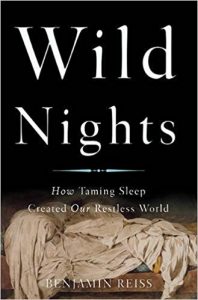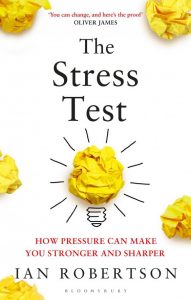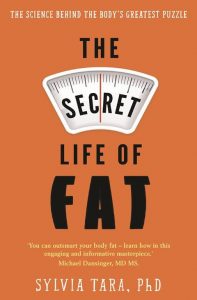The Armchair Scientist: A quarterly roundup of the latest updates to our science collection with a spotlight on: The Science of Self-Care.
 Are You Getting Enough Sleep?
Are You Getting Enough Sleep?
The mystery of sleep: why a good night’s rest is vital to a better, healthier life
Written by Meir Kryger, M.D., The Mystery of Sleep offers an up close and personal look at what, exactly, our bodies are doing during our hours of shut-eye. Offering up a sweeping journey into the 40-year history of sleep science, Kryger aims to show why sleep — an activity many of us spend one full third of our lives engaging in — really does for the body, and why a lack of sleep can often point to larger issues. Kryger is a professor in the Yale School of Medicine. The book is published by the Yale University Press.
The sleep solution: why your sleep is broken and how to fix it
In this book, neurologist and sleep expert W. Chris Winter, M.D., brings his 24 years of experience directly helping patients sort out their sleep cycles to bear as he discusses the science of sleep, the different ways in which the sleep cycle can become disrupted, and what to do to fix it. Including self-assessments and exercises, The Sleep Solution will help readers understand the different ways their individual physiology and mental states can affect their sleep and how to get their bodies operating back in their natural rhythms for a restful night, every night.
Wild nights: how taming sleep created our restless world
In this book, author Benjamin Reiss tackles something a little different: the history of sleep. The eight-hour night, he argues, is a relatively recent invention that, while helpful to many, isn’t the only way we as humans can choose our respite. This book is less a tome of self-help advice and more an in-depth examination of the evolution of sleep, from ancient times to modern day. Reiss is a professor of English at Emory University and Theaters of Madness, and the recipient of a Guggenheim fellowship.
 Care for the Body & Mind
Care for the Body & Mind
Teeth: the story of beauty, inequality, and the struggle for oral health in America
In Teeth, journalist Mary Otto, leading oral health writer from the Association of Health Care Journalists, discusses the economic implications of oral health in America. The New Press promises the book will “take readers on a disturbing journey into America’s silent epidemic of oral disease, exposing the hidden connections between tooth decay and stunted job prospects, low educational achievement, social mobility, and the troubling state of our public health.”
If Our Bodies Could Talk: a guide to operating and maintaining the human body
Ever wish your body had come with an instruction manual? Look no further. Author James Hamblin expands his popular article and video series “If Our Bodies Could Talk” (The Atlantic, 2014) into a full-length explanation of our bodies many systems and their interconnections, and the surprising health implications that result. Witty and engaging but grounded solidly in science, this book will entertain and enlighten in equal measure. Includes detailed illustrations.
The Stress Test: how pressure can make you stronger and sharper
Why do some people react to stress by rising to the occasion, which others simple curl in on themselves and accept failure? Professor Ian Robertson, clinical psychologist and cognitive neuroscientist, has spent over four decades of researching the brain’s response to pressure and stress. Now he’s ready to share that research in The Stress Test. According to publisher Bloomsbury, “The Stress Test is a revelatory study of how and why we react to pressure in the way we do, with real practical benefit to how we live.”
 Diet & Health
Diet & Health
In his most recent work, acclaimed health writer Gary Taubes presents the hypothesis that sugar is toxic, potentially more so than tobacco and other known “slow poisons,” and is responsible for myriad health concerns plaguing the Westernized populace including diabetes, obesity, metabolic syndrome, heart disease, cancer, and other inflammatory diseases. Taubes gives us a history of the Westernization of sugar, including a discussion of the sugar industry, the history of “Big Sugar” and its influence in the world today. For readers interested in personal health and diet, The Case Against Sugar provides much food for thought.
In her new book on fat, author Sylvia Tara, PhD, begins with today’s modern views on fat and compares them to how fat has been viewed throughout history, then takes us through the study of fat and antipode research from the 1980s-present day. The text highlights scientific understanding of fat’s role in the body as an organ of the endocrine system, why fat is important, and why your body will fight so hard to maintain it. Further discussion on how to lose fat using this science is also included.
The Plant Paradox: The Hidden Dangers in “Healthy” Foods That Cause Disease and Weight Gain
Author Steven R. Gundry, M.D., director of the International Heart and Lung Institute, has spent his professional life studying so-called “healthy foods.” Here he takes a closer look at seemingly innocuous foods that might be impacting your health. Did you know the humble tomato is a prime source of lectin — a substance that some find harmless, but for others may be a contributing factor to grave illnesses such as Crohn’s disease or rheumatoid arthritis? Gundry gives research-based advice on how to restore your gut to good health to keep illness at bay and leave you feeling satisfied with the food you’re eating.
